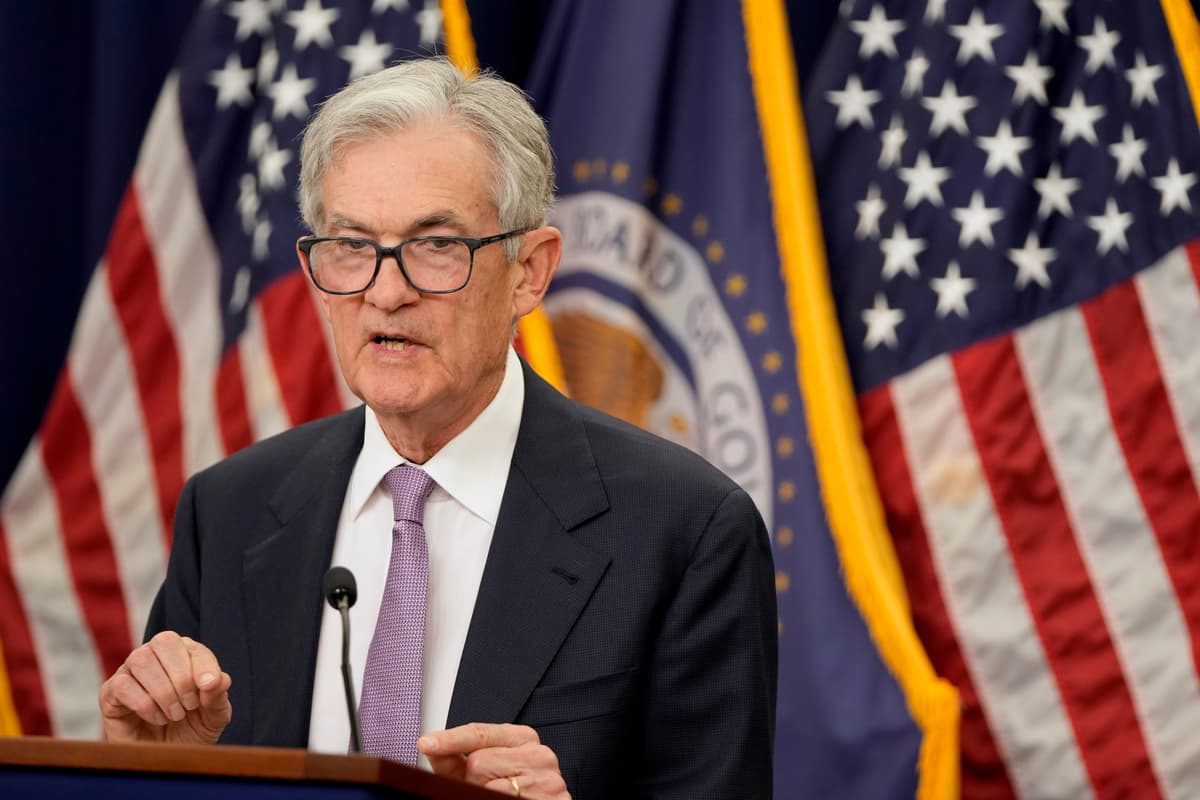The Revolt at the Fed
The central bank’s governors vow to re-elect Jerome Powell chairman even if the president fires him.

The question of whether President Trump can fire the head of the Federal Reserve has ignited an absolutely astonishing revolt by the governors of the central bank. They have vowed, the Wall Street Journal reports, that if Trump tries to fire the current chairman, Jerome Powell, the board will keep reelecting him to the same chairmanship. Mr. Powell himself pledged, during a press conference last week, not to leave his position even if fired.
Where is the adult in that room? “I feel accountable and responsible for the institution,” is how Mr. Powell, per the Journal, frames his insistence on keeping his job, even if the president disagrees. “I will never, ever, ever leave this job voluntarily until my term ends under any circumstances,” Mr. Powell says. The Journal reports that the Open Market Committee has plotted to defy the president by re-electing Mr. Powell chairman if his “status” was ever “called into question.”
One would think from the way they are talking that the laws on this are clear. Yet there is no Supreme Court decision that addresses directly the question of whether the president — who nominates the Fed chairman to his position — can withdraw his support and fire his appointee to the Fed chair. The three Supreme Court decisions that bear indirectly on the question are all over the map and, in our reading, fail to settle the matter.
The first case that bears on this head is Myers v. United States, decided in 1926. It sorted out the question of whether a law passed in 1876 unconstitutionally restricted the power of the president to fire a post-master. Yes, the high court said. According to Chief Justice Taft’s opinion, denying the president the power to hire and fire executive branch officials “might make his taking care that the laws be faithfully executed most difficult or impossible.”
Nearly ten years later, in Humphrey’s Executor v. United States, the Nine found that the president lacked authority to fire the head of the Federal Trade Commission beyond reasons of “inefficiency, neglect of duty, or malfeasance in office.” Four years ago, in Seilla Law LLC v. Consumer Finance Protection Bureau, the court ruled that the head of the Bureau, another quasi-independent agency, “must be removable by the President at will.”
It’s unclear how any of it helps Mr. Powell, and it’s extraordinary that he has emerged at the head of a revolt at the Fed. It may be that he feels the weight of his predecessors. For decades, the bank has tried — with success — to elude any oversight from government officials who are accountable to voters. Chairman William McChesney Martin, before Congress in 1964, denied that the bank was part of any of the federal government’s three branches.
Congressman Wright Patman was trying to get the Fed audited like any other federal agency. The bank demurred. The late Patman is lucky he’s not alive today, when, as our Alex Pollock has been warning, the Federal Reserve’s real capital is now negative $158 billion. That puts its own light on Martin’s contention that the bank is not part of the government’s three branches. Who’s on the hook for that negative capital?
We see this revolt as a feature of the age of fiat money. The powers the Federal Reserve’s governors exercise are vastly expanded in an age in which the law sets no value for the dollar in terms of gold or silver, a value that has now plunged to less than a 2,600th of an ounce of gold. A president committed to honest, constitutional money would call the Fed’s bluff, win, lose, or draw. It could turn out, after all, to be a first step in the return to honest money.

